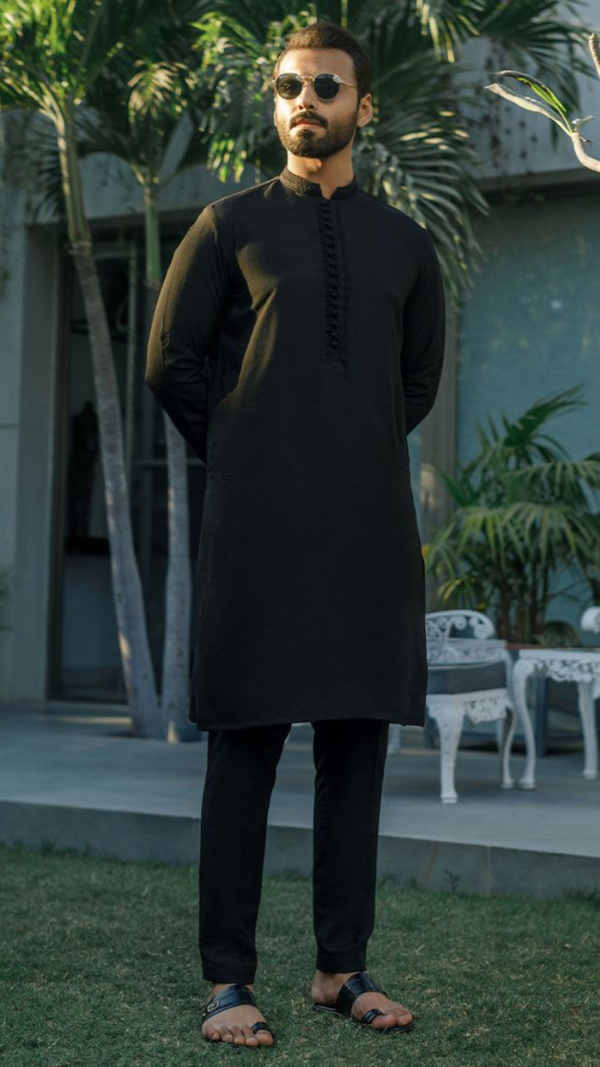- News
- lifestyle
- fashion
- style-guide
- Sustainable style on a budget
Trending
Sustainable style on a budget
India embraces sustainable fashion to preserve heritage, empower artisans, and meet eco-conscious demands. Sustainability in fashion fosters environmental responsibility, social equity, and consumer awareness, driving a shift towards a more ethical and inclusive industry.

In recent years, the fashion industry has undergone a significant transformation, with a growing emphasis on sustainability. Sustainable fashion, also known as eco-fashion, refers to clothing and accessories that are designed, produced, and utilised in a manner that is environmentally friendly and socially responsible. At its core, sustainable fashion aims to minimise the environmental impact of the fashion industry while promoting fair labour practices and social equity throughout the supply chain.
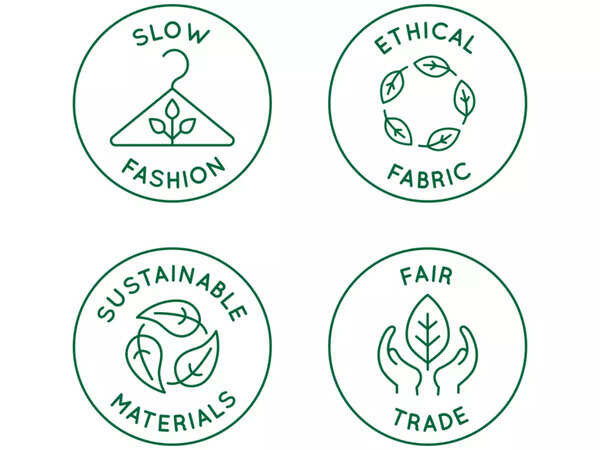
What is sustainable fashion?
One of the key principles of sustainable fashion is the use of eco-friendly materials. This involves sourcing fabrics and fibers that are renewable, biodegradable, and produced using environmentally friendly methods. For example, organic cotton, hemp, bamboo, and Tencel are popular choices due to their reduced environmental footprint compared to conventional materials. Additionally, sustainable fashion encourages the use of recycled or upcycled materials, diverting waste from landfills and conserving valuable resources.
Another important aspect of sustainable fashion is ethical production practices. This encompasses fair labour conditions, living wages, and safe working environments for garment workers. Brands committed to sustainable fashion prioritize transparency and accountability throughout their supply chains, ensuring that workers are treated ethically and with dignity. By supporting fair labour practices, sustainable fashion seeks to empower workers and promote social justice within the industry.
Furthermore, sustainable fashion emphasizes longevity and durability over fast fashion trends. This involves designing timeless pieces that are made to last, using high-quality craftsmanship and materials. By investing in well-made garments, consumers can reduce their overall consumption and minimize textile waste. Sustainable fashion also encourages repair, reuse, and recycling, prolonging the lifespan of clothing and reducing its environmental impact.
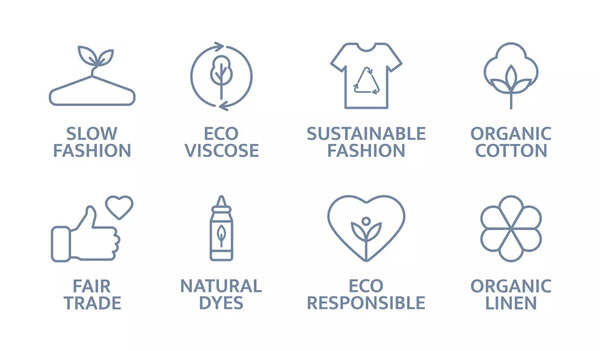
Sustainable fashion represents a shift towards a more ethical, environmentally friendly, and socially responsible fashion industry. By prioritising eco-friendly materials, ethical production practices, and longevity, sustainable fashion offers a path towards a more sustainable future for both fashion and the planet. Embracing sustainable fashion is not only a choice; it is a commitment to creating positive change and making a difference in the world.

India vs global sustainable fashion market
In 2022, the global sustainable fashion market was valued at USD 7021.0 million. According to our research, this market is projected to expand significantly, reaching USD 12094.0 million by 2028, with a compound annual growth rate (CAGR) of 9.49% during the forecast period. The COVID-19 pandemic caused a substantial downturn in demand across all regions, falling below expectations compared to pre-pandemic levels. However, the market has shown resilience, with demand rebounding to pre-pandemic levels, contributing to the notable rise in CAGR during the forecast period.
In a 2021 Statista Consumer Insights special, a remarkable 89 percent of surveyed Indians stated their preference for sustainable and eco-friendly fashion choices. These included opting for garments made from sustainable fabrics, fair trade products, or items with lower CO2 emissions compared to conventionally produced alternatives. Notably, among all surveyed countries, Indian participants emerged as the most eco-conscious consumers, reflecting a growing awareness and commitment to sustainable fashion practices.
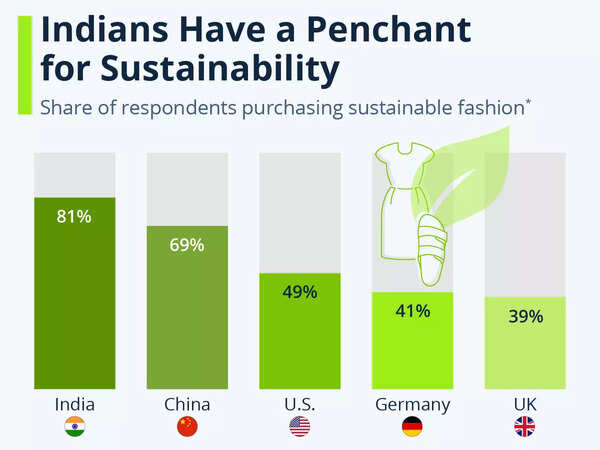
Following closely, China secured the second position among the five countries surveyed, with 69 percent of participants actively purchasing sustainable clothing, accessories, or footwear. Conversely, in Western countries like the United States and Germany, the prioritization of sustainability in fashion appears less prevalent. Only 49 percent of US respondents and 41 percent of German respondents reported buying eco-friendly apparel or similar items, indicating differing attitudes towards sustainable fashion consumption.
Further insights from the survey reveal that 45 percent of Indian respondents are willing to pay a significant premium for ethically produced fashion. Quality, price, and comfort emerged as the primary criteria influencing sustainable fashion purchases in India, with brand reputation or manufacturer credibility ranking lower in importance, cited by only 47 percent of Indian respondents. These findings underscore the shifting consumer preferences and priorities within the Indian fashion landscape towards sustainability and ethical production practices.
Indians shine on the Met Gala green carpet: Alia Bhatt, Isha Ambani, Sudha Reddy and more turn heads!
Why sustainable fashion is the need of the hour in India?
Sustainable fashion has become an urgent necessity in India due to several compelling reasons. First and foremost, India is one of the largest contributors to the global fashion industry, with a vast textile and garment manufacturing sector. However, this rapid growth in the fashion industry has come at a significant environmental cost. From water pollution caused by textile dyeing to the generation of vast amounts of textile waste, the fashion industry's environmental footprint in India is substantial. Embracing sustainable fashion practices is crucial to mitigate these environmental impacts and safeguard the country's natural resources for future generations.
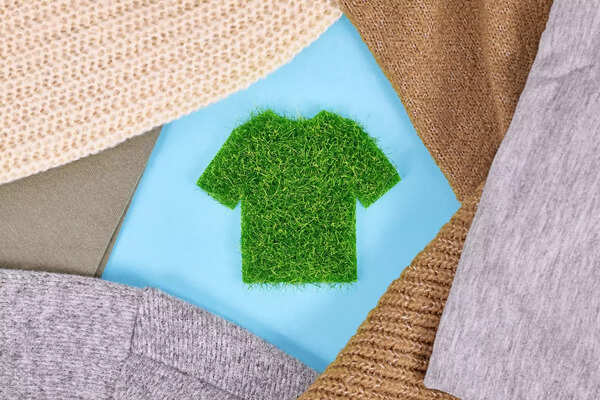
Secondly, India is home to a diverse and rich textile heritage, with a long tradition of craftsmanship and handloom weaving techniques. By promoting sustainable fashion, India can preserve and celebrate its rich textile heritage while supporting local artisans and craftsmen. Sustainable fashion encourages the use of traditional techniques and natural fibers, providing a platform for indigenous communities to showcase their skills and preserve their cultural heritage.
Moreover, the social and economic implications of sustainable fashion cannot be overlooked. The fashion industry in India is a significant source of employment, particularly for women in rural areas. By promoting ethical and fair labour practices, sustainable fashion can improve working conditions, ensure fair wages, and empower marginalised communities within the industry. This not only fosters social equity but also contributes to poverty alleviation and economic development in the country.

Furthermore, with increasing awareness about environmental and social issues among consumers, there is a growing demand for sustainable and ethical fashion in India. Consumers are becoming more conscious of the impact of their purchasing decisions and are actively seeking out brands that align with their values. Embracing sustainable fashion is not only a moral imperative but also a business opportunity for Indian fashion brands to differentiate themselves in a competitive market and attract eco-conscious consumers.
Sustainable fashion is the need of the hour in India to address environmental degradation, preserve cultural heritage, promote social equity, and meet the evolving demands of conscious consumers. By embracing sustainable fashion practices, India can pave the way towards a more environmentally friendly, socially responsible, and inclusive fashion industry.

How to dress ethically without breaking the bank
In a world where fast fashion dominates, the idea of building a sustainable wardrobe on a budget might seem daunting. However, with a bit of creativity, research, and thoughtful planning, it's entirely possible to embrace sustainable fashion without emptying your wallet. In this article, we'll explore practical tips and strategies for adopting a more ethical approach to fashion while sticking to a budget.
Define your style and needs
Before embarking on your sustainable fashion journey, take some time to reflect on your personal style and wardrobe needs. By defining your aesthetic preferences and identifying key pieces that you truly love and wear often, you can make more informed purchasing decisions. Focus on building a versatile wardrobe composed of timeless, high-quality basics that can be mixed and matched effortlessly.
Prioritise secondhand and vintage shopping
One of the most budget-friendly ways to embrace sustainable fashion is by shopping secondhand or vintage. Thrift stores, consignment shops, flea markets, and online resale platforms offer a treasure trove of pre-loved clothing and accessories at a fraction of the cost of new items. Not only does shopping secondhand save money, but it also extends the lifespan of existing garments and reduces textile waste.

Host or participate in clothing swaps
Clothing swaps are another fantastic way to refresh your wardrobe without spending a dime. Organize a swap with friends, family, or colleagues where participants can exchange gently used clothing, shoes, and accessories. Not only is this a cost-effective way to acquire new items, but it also fosters community and promotes sustainable consumption practices.
Invest in timeless staples
While it's tempting to splurge on trendy pieces, investing in timeless staples is a smarter long-term strategy for building a sustainable wardrobe on a budget. Classic items such as a well-fitted blazer, tailored trousers, a white button-down shirt, and a little black dress are versatile, timeless, and can be styled in countless ways. Look for quality garments made from durable, natural fibers that will withstand the test of time.

Research ethical and affordable brands
Contrary to popular belief, ethical fashion doesn't always come with a hefty price tag. Many sustainable brands offer affordable options, especially if you're willing to do some research and comparison shopping. Look for brands that prioritize transparency, ethical production practices, and environmentally friendly materials. Keep an eye out for sales, promotions, and discount codes to maximize savings.

Practice mindful consumption
In a consumer-driven society, it's easy to fall into the trap of impulse buying and excessive consumption. To avoid unnecessary purchases and overspending, practice mindful consumption by asking yourself important questions before making a purchase. Consider whether you truly need the item, how often you'll wear it, and whether it aligns with your values and lifestyle. By adopting a more intentional approach to shopping, you can save money and reduce your environmental impact.

Embrace DIY and upcycling projects
Get creative and breathe new life into old garments through DIY and upcycling projects. Whether it's altering the fit of a thrifted find, embellishing a plain t-shirt with embroidery, or transforming old jeans into trendy denim shorts, upcycling allows you to personalize your wardrobe while reducing waste. Explore online tutorials, workshops, and community events for inspiration and guidance.
Fast vs slow fashion explained
How to ditch fast fashion and embrace sustainable style
Take care of your clothes
Proper garment care is essential for extending the lifespan of your clothing and minimising the need for replacements. Follow care instructions carefully, store items correctly, and mend any minor damages promptly to prevent them from worsening. By taking care of your clothes, you can maximize their longevity and get more wear out of each piece.
Sustainable fashion doesn't have to be synonymous with expensive or unattainable. With the right mindset and approach, you can build a stylish and ethical wardrobe on a budget. By prioritising secondhand shopping, investing in timeless staples, supporting affordable ethical brands, and practicing mindful consumption, you can embrace sustainability without breaking the bank. Remember, every conscious choice you make as a consumer contributes to positive change in the fashion industry and beyond.
End of Article
FOLLOW US ON SOCIAL MEDIA

